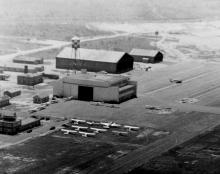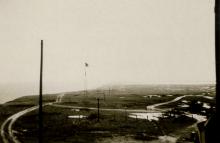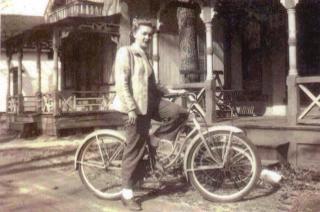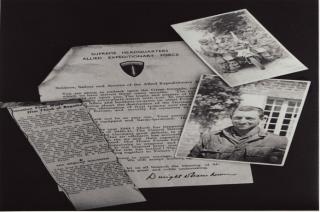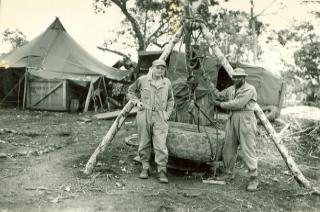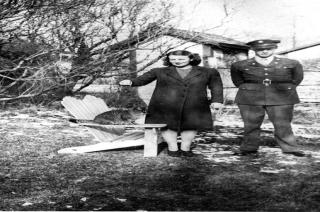
World War Two
2011
In celebration of the upcoming Veterans Day holiday, the Martha’s Vineyard Museum has launched a new online exhibit sharing the stories of Vineyard World War II veterans.
Those Who Serve: Martha’s Vineyard and World War II, began as an exhibition in the Museum during 2009 and 2010. The exhibit’s popularity resulted in an oral history book curated by Linsey Lee. Short audio excerpts of those interviews have now been put together with archival photos in an online exhibit allowing people all over the world to hear the stories.
Mary Carr, 88, made a journey back to the Vineyard last Friday. The last time she was here, 67 years ago, war raged in Europe and in the Pacific. It was a time in the nation’s history when people all around her made huge sacrifices. In that year, she lost her husband.
For Mary, this two-day Vineyard visit was a rekindling of fond memories. It was also about Memorial Day and loss and sharing her personal story with others.
2010
The password for that drop was George Washington. If you heard a rustling and you didn’t know who was there you would say “George,” and if you received the password “Washington,” then you knew it was your own troopers.
They were Islanders and they served their country in World War II, in all branches of the armed forces, men and women, most of them barely beyond their teens. This weekend the Martha’s Vineyard Museum opens the second part of an ongoing exhibit that features among other things a powerful collection of oral histories from Vineyarders who served in World War II.
Rationing, blackouts, prisoners of war and air raid drills — all were very real facts of life for Islanders during World War II. In an ongoing exhibit the Martha’s Vineyard Museum has captured some of the many recollections of Vineyarders from those years, both at home and abroad. Titled Those Who Serve — Martha’s Vineyard and World War II, the exhibit features oral histories, photographs, film footage and artifacts. The exhibit will be expanded into a second part on Memorial Day weekend.
The Vineyard was a frightening place for a young girl to be during World War II, but exciting too. Servicemen were walking the streets before their deployment to Europe. Navy and Army pilots conducting training exercises overhead occasionally came crashing into the ocean. And there were the constant rumors of enemy spies and submarines along the Island’s shores.
